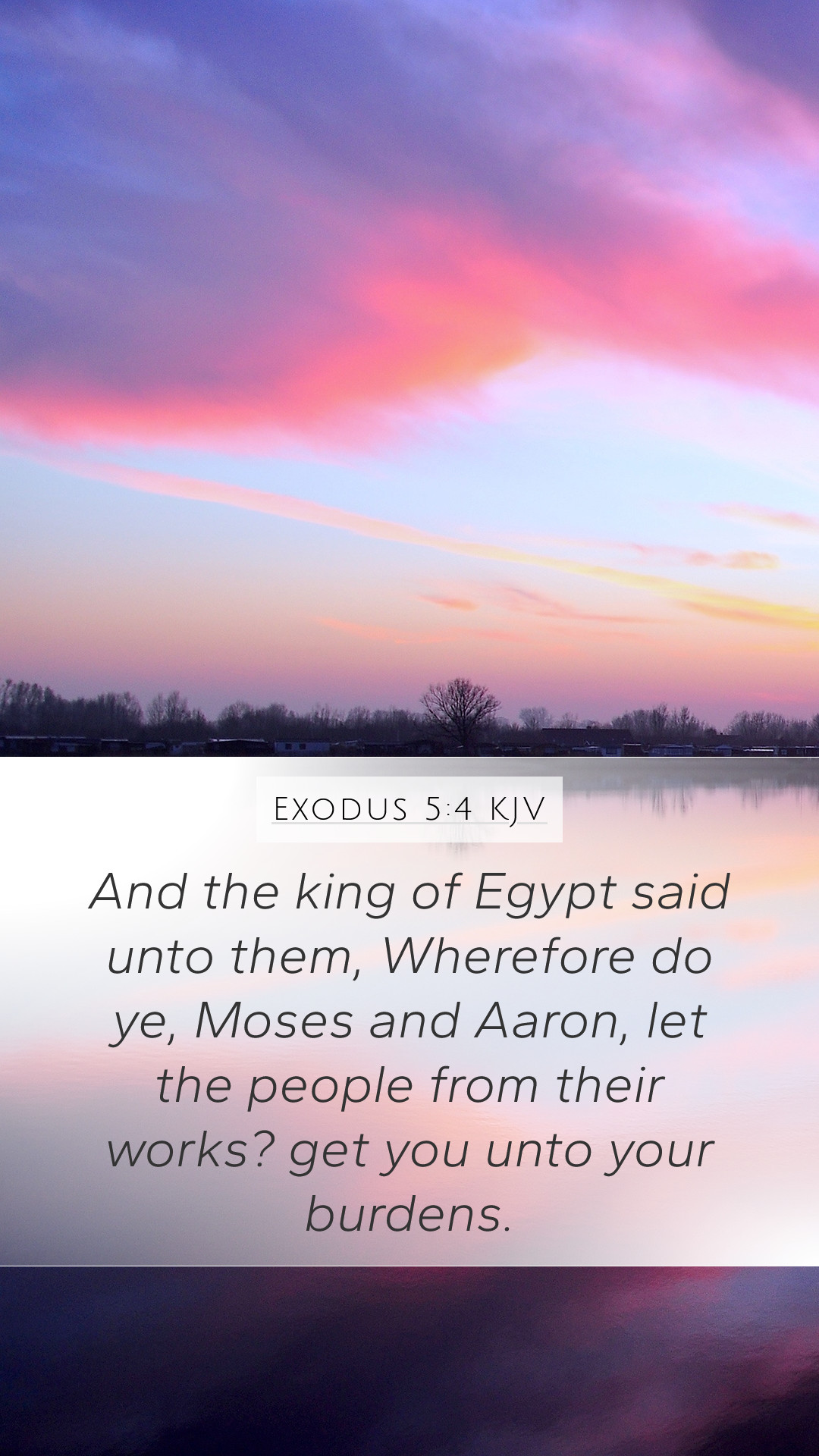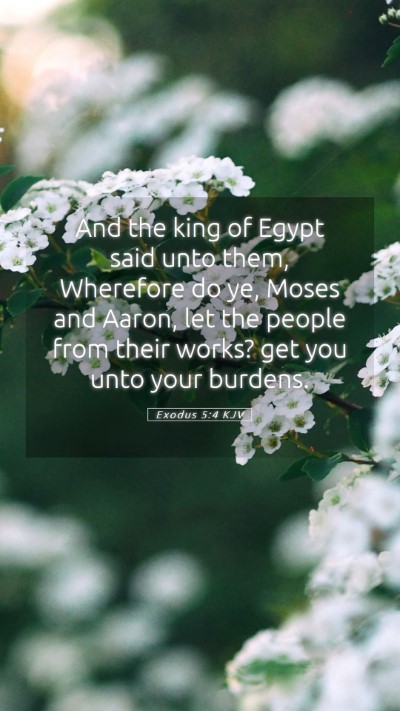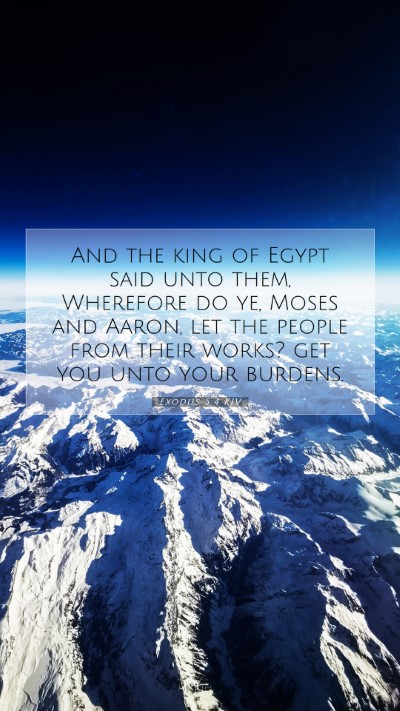Understanding Exodus 5:4
Bible Verse: Exodus 5:4
This verse is part of a dialogue between Moses, Aaron, and Pharaoh, depicting the initial confrontation as the Israelites seek to be freed from bondage. The verse reads:
"And the king of Egypt said unto them, Wherefore do ye, Moses and Aaron, let the people from their works? get you unto your burdens."
Meaning of Exodus 5:4
The meaning of this Bible verse can be unpacked through careful analysis of its context, framing, and implications for the people of Israel and their plight.
-
Contextual Analysis:
Moses and Aaron, having recently received God's command to lead the Israelites out of Egypt, find themselves facing immediate pushback from Pharaoh. The king's question underscores a critical moment where human authority directly challenges divine command.
-
Pharaoh's Dismissal:
Pharaoh's reaction reveals his hardened heart and refusal to acknowledge the plight of the Israelites. He perceives their request as a distraction that diverts them from laborious tasks. Here, we see a character who encapsulates oppression.
-
Theological Implications:
This passage serves to illustrate themes of oppression, the power struggle between God’s messengers and earthly authorities, and God's sovereignty. The resistance faced by Moses and Aaron foreshadows the trials that will culminate in God's miraculous deliverance of His people.
-
Practical Applications:
This verse also speaks to present-day believers who may feel called to challenging tasks. It reminds us that opposition can arise when pursuing God's purposes. The charge to step in faith, much like Moses and Aaron, becomes especially significant amid obstacles.
Bible Commentary Insights
Insights from public domain commentaries further elaborate on this verse:
-
Matthew Henry:
Henry comments on the contrasts found in this passage—God’s mission for Israel versus Pharaoh's selfish ambitions, noting that leaders often ignore the cries of the oppressed. His reflection emphasizes the pride and stubbornness of evil rulers who misunderstand the divine calling of the faithful.
-
Albert Barnes:
Barnes points out that Pharaoh's rebuke reveals his contempt for the Israelites' request and highlights the existing power dynamics. He notes the futility of attempting to negotiate God’s will with human authority, reminding readers to be steadfast in the face of resistance.
-
Adam Clarke:
Clarke provides a historical perspective, emphasizing the context of heavy burdens placed upon the Israelites. He highlights the significance of physical labor both as a means of productivity and as a tool of oppression, inviting readers to reflect on freedom from spiritual burdens through faith.
Cross References
- Exodus 1:13-14 - The oppression of the Israelites in Egypt.
- Exodus 3:10 - God's call for Moses to lead the people out of bondage.
- Romans 13:1-2 - A New Testament perspective on submission to authorities.
- Matthew 23:4 - Jesus' criticism of leaders burdening their followers.
- Isaiah 58:6-7 - God's desire for true freedom and liberation from oppression.
Conclusion
Exodus 5:4 stands as a narrative piece that not only delineates a tense and pivotal moment in the story of Israel's deliverance but also serves as an instructive example for modern believers. It encourages a deeper bible study understanding of how God works amidst human opposition and invites readers to reflect upon their faith journeys amidst challenges.


